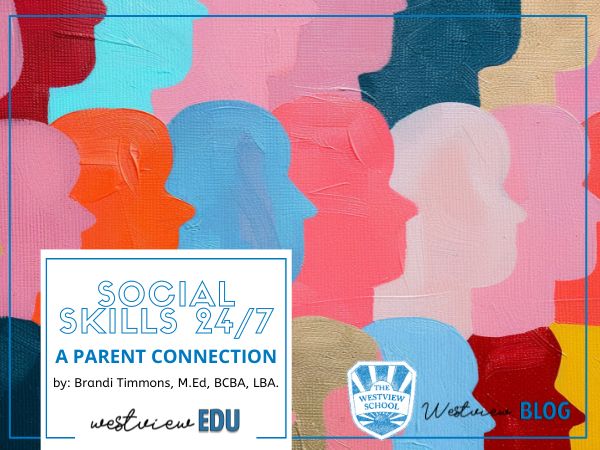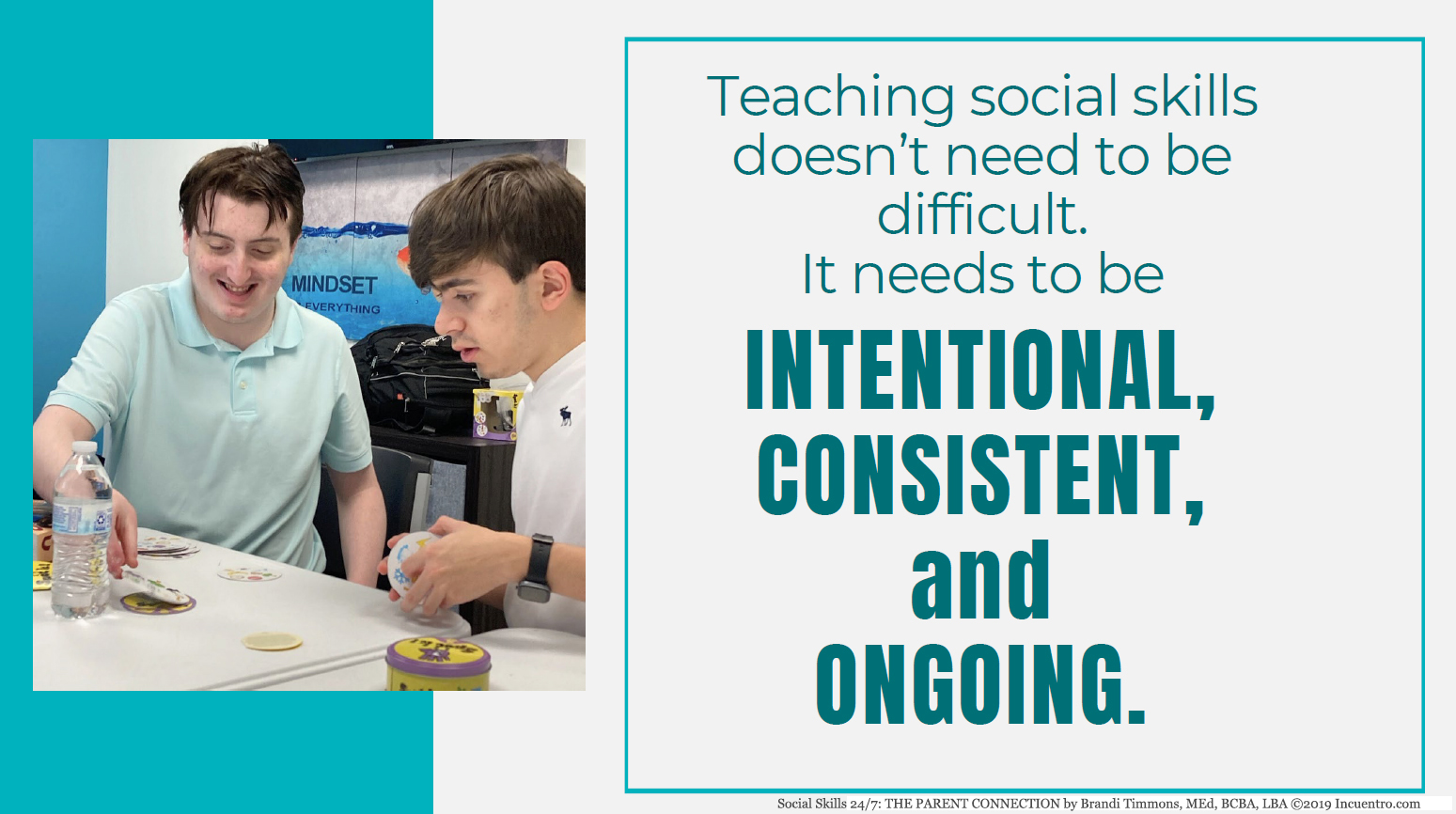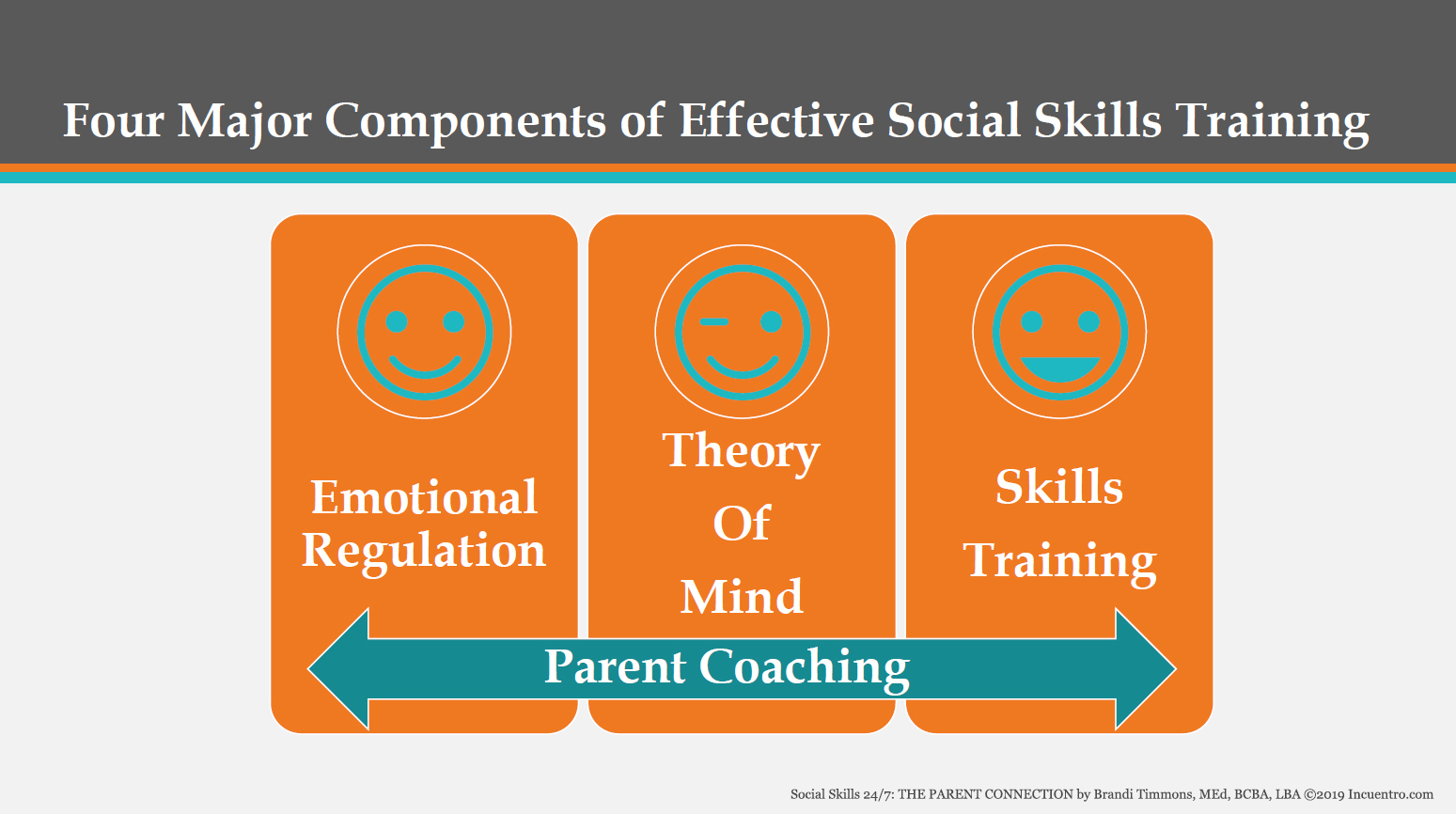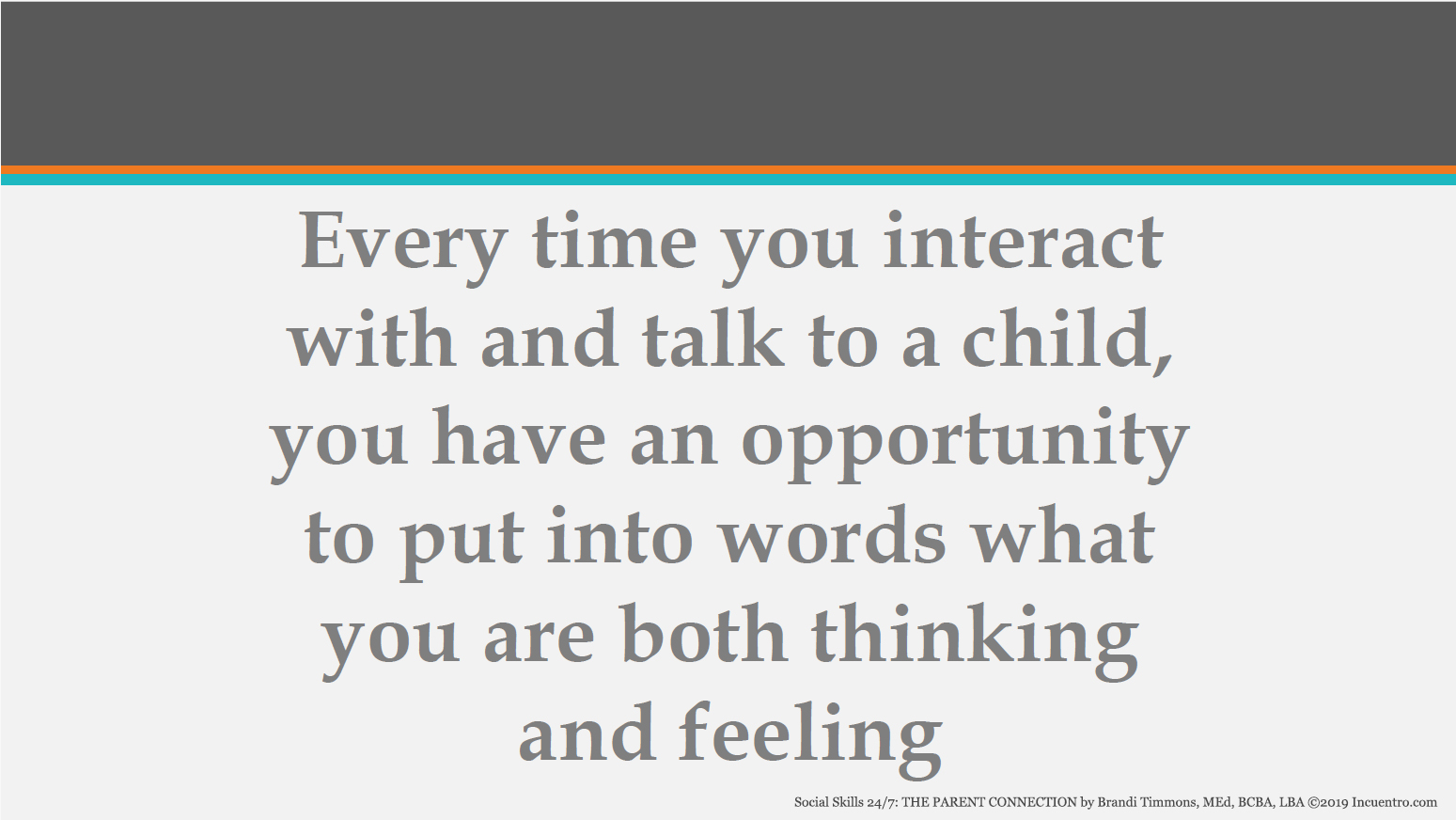
Social Skills 24/7: A Parent Connection

Social skills are everywhere—at school, at home, in the community—and for autistic children, navigating these interactions can be one of the biggest challenges they face. That’s why Brandi Timmons, BCBA, calls social skills her “heartbeat topic.” With over 23 years of experience working with individuals on the spectrum, Brandi has dedicated her career to helping parents, educators, and professionals understand the how and why behind effective social skills training.
Brandi’s journey began as a special education teacher in a small rural school district, working with students of all ages and abilities. She quickly realized that while schools often focused on academics, social skills—the very area where autistic students need the most support—were frequently overlooked. Determined to change this, she sought out research-backed strategies and transformed her classrooms into models of inclusion, where students with autism became fully integrated into the school community.
As a Board-Certified Behavior Analyst (BCBA), Brandi has worked in public schools, private clinics, and nonprofit organizations, always with the same goal: ensuring that social skills training is accessible, practical, and long-term. Now, as the Education Director at Social Motion Skills and the founder of Incuentro, she continues work towards bridging the gap between research and real-world practice.
Social Skills Training Matters
Social development is a core challenge for autistic individuals, yet it is often overlooked in diagnoses and education plans. Unlike speech or occupational therapy, social skills training isn’t something a child simply “graduates” from—it requires reinforcement throughout life.

For this reason, Brandi thinks a life path approach works best, supporting children from early childhood through young adulthood. Social skills should go beyon structured lessons; they must be modeled, practiced, and reinforced in everyday situations.
The Four Components of Social Skills Development

There are four major components of social skills development. These include emotional regulation, theory of mind, skill-building, and parental support. Before a child can effectively interact with others, they must learn to manage their emotions, as emotional regulation is the foundation for all social interactions. Theory of mind, or the ability to understand that other people have different thoughts and feelings, is essential in developing meaningful connections. Skill-building involves explicitly teaching behaviors such as making eye contact, starting conversations, and understanding social cues to foster better communication. Lastly, parental support plays a crucial role in reinforcing these skills outside of structured lessons, ensuring children have consistent opportunities to practice and grow in real-world situations. This article highlights the importance of parental support in social skills development and offers practical ways for parents to help their children build confidence and navigate social interactions successfully.
How Parents Can Help at Home
Model Emotional Regulation
Children learn by watching their parents. Narrate your emotions and responses to everyday frustrations. For example, instead of reacting angrily to an empty milk jug in the fridge, say: “Oh no, we’re out of milk! That’s frustrating, but I can grab a Pop-Tart instead.” This simple narration teaches kids how to process emotions and adjust to unexpected situations.
Validate Their Feelings
Before correcting behavior, acknowledge emotions. If your child is upset about a change in plans, try: “I know you were looking forward to the park. It’s okay to feel disappointed.” When children feel heard, they are more likely to regulate their emotions and engage in problem-solving.
Coach Social Skills in the Moment
Structured lessons are important, but real-life practice is where skills solidify. Instead of just telling your child to be polite, guide them through interactions: “When we see Grandma, let’s make eye contact and say, ‘Hi, Grandma!’” Coaching in the moment helps children internalize these skills.
Reinforce Social Awareness
Help your child develop perspective-taking skills by pointing out emotions in others. Use books, role-playing, and real-life examples to discuss how people might be feeling: “Look at your friend’s face—he looks sad. Why do you think that might be?” Teaching empathy and perspective-taking is key to meaningful social interactions.
Social Skills Development is a Lifelong Journey
Social skills evolve with age and life experiences. As a parent, your role is to provide ongoing support, model appropriate behaviors, and advocate for your child’s needs.
If your child is already receiving social skills training, fantastic! If not, don’t hesitate to ask about it in IEP meetings or seek outside resources. Every child has the potential to grow in their social abilities with the right support.
By being intentional, consistent, and patient, you can help your child build the confidence and skills they need to succeed socially. Start small, celebrate progress, and keep reinforcing these valuable lessons.

Additional Tips for Parents
Encourage Theory of Mind Through Daily Conversations
Everyday interactions provide opportunities to help your child develop perspective-taking skills. Engage in simple discussions like:
“Why do you think Grandma cooked that for dinner?”
“What do you think your friend wants to play next?”
“How do you think your teacher felt when she saw your hard work?” Encouraging these conversations helps children understand that others have different thoughts, preferences, and emotions.
Use a Visual Reminder
Place a list of key social skills or emotional vocabulary on your fridge or somewhere visible in your home. This serves as a daily reminder to incorporate these concepts into conversations and practice.
Expand Emotional Vocabulary
One simple way to improve emotional regulation is by broadening your child’s vocabulary for emotions. Introduce new words gradually. For example, instead of just saying “happy,” try “ecstatic,” “joyful,” or “content.”
Make Playdates More Effective
Many parents seek playdates with other children on the spectrum, which can be beneficial, but structured guidance is key. Instead of meeting at a park without a plan, create a structured activity to help children engage successfully. Provide gentle coaching by pointing out social cues and emotions in the moment.
For example, if your child is playing with Legos alongside a friend, guide them by saying: “Look at your friend’s face—he seems excited about the tower you’re building together!”
Small Steps Make a Big Difference
Supporting your child’s social development doesn’t have to be overwhelming. Start with one small change—whether it’s modeling emotional regulation, using a new word for feelings, or guiding a playdate with structure. Each step, no matter how small, contributes to meaningful growth over time.
By being intentional and consistent, you can empower your child with the social skills they need to navigate the world with confidence. Start today, and celebrate every step forward!
---
Brandi Timmons, M.Ed, BCBA, LBA is a Licensed Board-Certified Behavior Analyst and a TEA certified special educator. She has over 23 years of experience working with individuals with autism - 14 of those in public school classrooms. Her talents include writing social skills curricula and producing educator and parent training. One of her passions is creating new programs to serve those in the autism community. She has been published in Autism Parenting Magazine, served as co-principal investigator on several research initiatives in conjunction with the University of Houston, and is a national conference speaker.
This blog post was adapted from the presentation given during WestviewEDU on Thursday, February 13, 2025. WestviewEDU is an education series presented by The Westview School for parents and caregivers of children with autism spectrum disorder. For a complete list of WestviewEDU sessions remaining for the 2024-2025 academic calendar year, visit The Westview School online.
